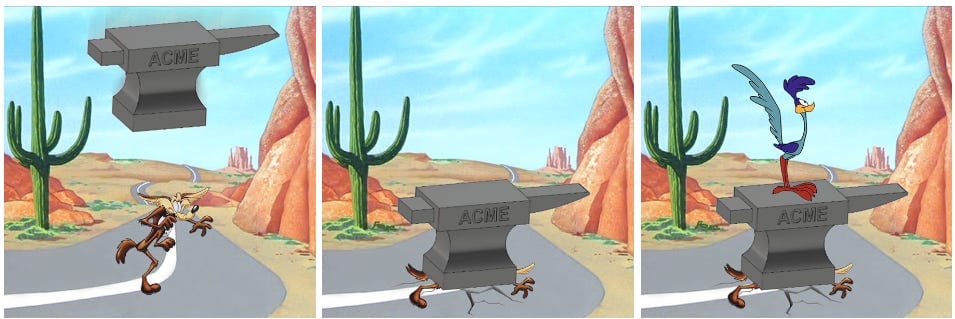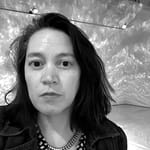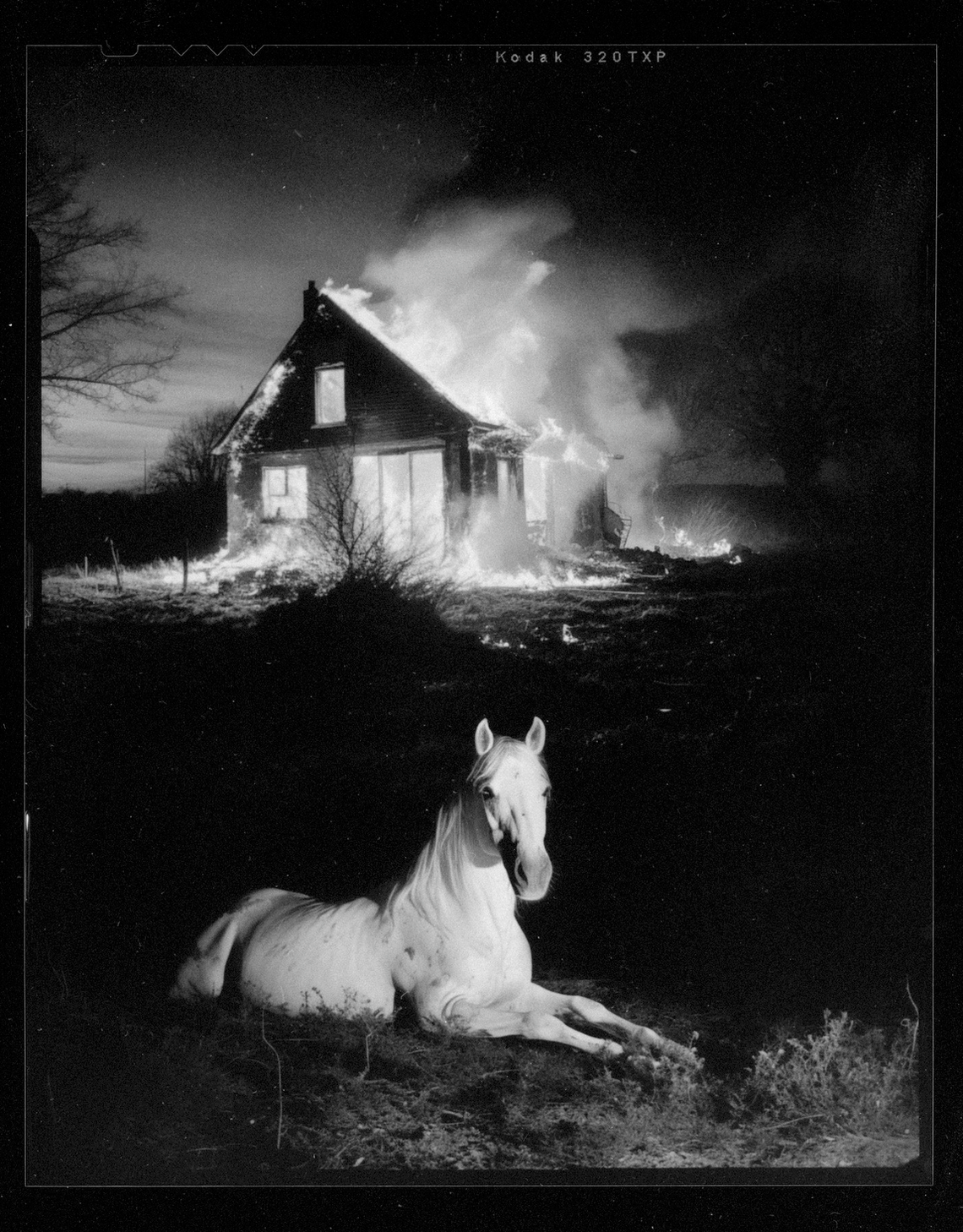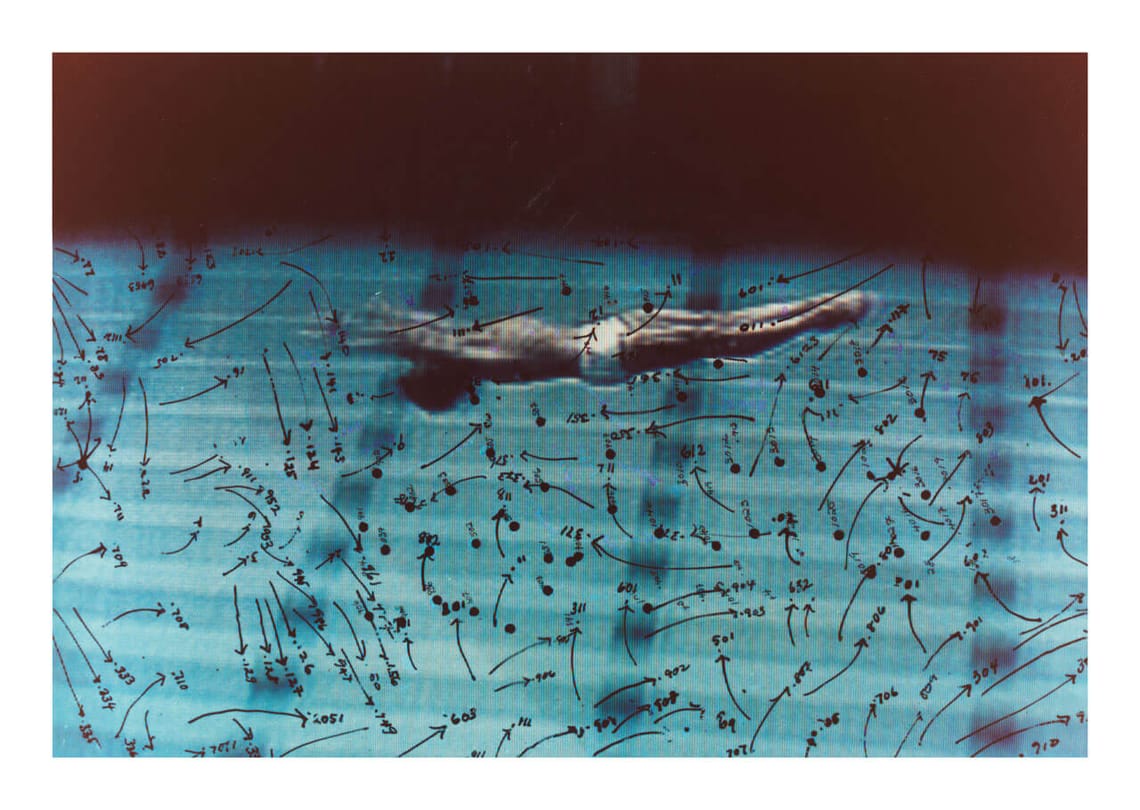Today I turn 50. Half a century! I joked that this birthday feels like the 50lb anvil that lands on Wile E. Coyote—kachunk!—and instead of ACME it reads 50 YEARS.
I have long wanted to go to Japan, and had hoped to do so this year. That trip is not financially feasible right now, so instead I'm at a nearby hot springs with my closest Colorado friends, and we will warm our bodies in thermally heated creeks while our hair freezes and enjoy each other and the beautiful winter mountains. The proximity to home feels right this year, as does the low-key celebration of a pause-giving birthday.
I woke up thinking that for me to see my daughter's 50th birthday, I'd have to live to be 79. I woke up thinking that this is my first birthday that both of the people that made my birth possible are dead. I woke up thinking about how much money is in our 401Ks, and if that will be enough for us until we die. Old people thoughts. At the moment I'm thinking about how in our youth we always look to our future, to what we'll be when we "grow up," but that I never really gave much thought to growing old. I wonder if the fact that I still feel like I'm somewhere in my mid-to-late 20's in my head has more to do with the fact that this is the age of the people I'm surrounded with in my everyday work life, or if it's a wish, or some kind of psychic deficit.
Twenty-five-year-old-me would be proud of fifty-year-me, for the most part, and disappointed by not having achieved some of what my younger self thought was important: I'm not living in a metropolis, I don't have a Guggenheim or any majorly impressive external art validators, I don't travel to Europe every year, I'm not with the person I thought that I loved then. In the intervening 25 years between then and now I've learned that I only like major cities in immersive doses, those major external validators aren't the validation I want or need, my life has yielded amazing travel and lived experiences in foreign lands, and I travel less but with more introspective appreciation now. And I've discovered that loving the wrong people is how you learn how you need to be loved, and I have found my way to that; the structure I have built for my life is sound and right for me.
There are bodies of work that I've only begun to scratch the surface of and that I'm excited to dig more hungrily into. I've allowed for myself that books are my primary vessel for communication, and have invested money, time and energy to understand that and how to make books in a deep and earnest way. I'm working on a book of my #exvangelical series, and hope to finish the first dummy of it this spring. I've started to make images about my (racially mixed, fundamentalist, dysfunctional and personality-disordered) family alongside notions of psychic inheritance, and I am stirred and challenged by trying to hold onto a light, jocuse feel to some fraught and strange subject matter. Here are a couple images that act the way I want all of the images I will make to act:
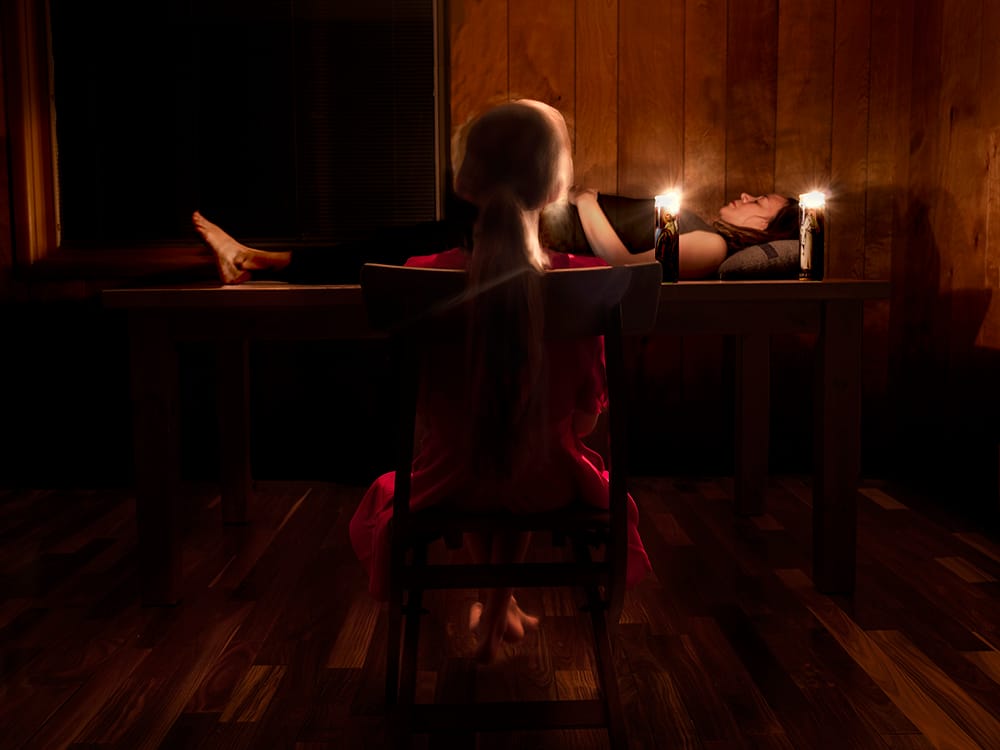
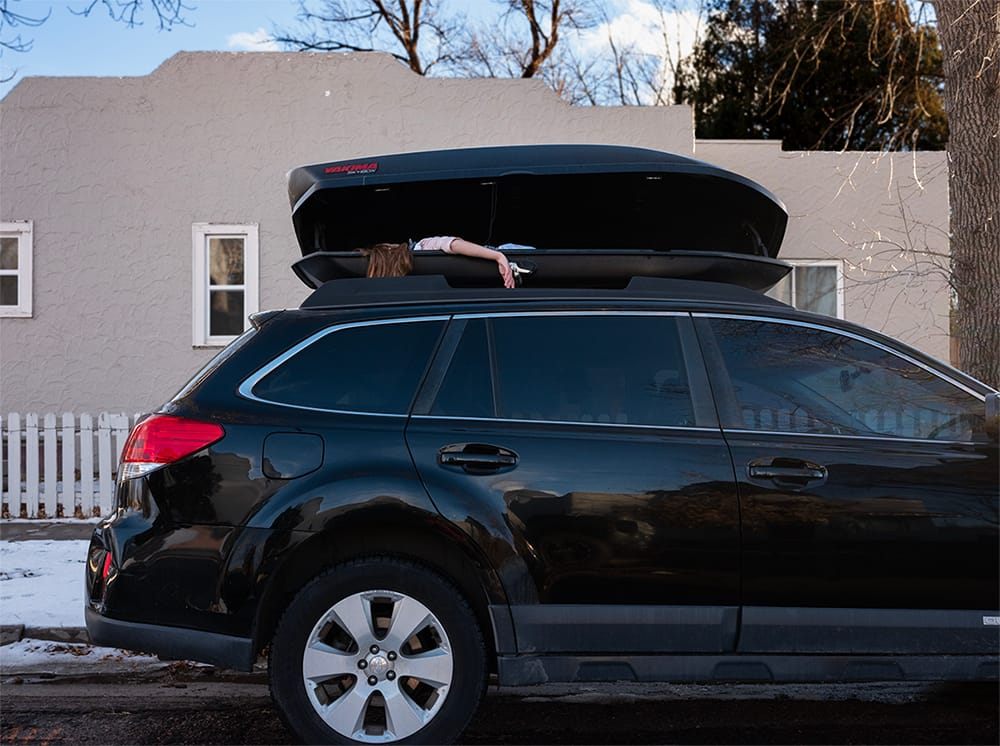
And lastly, I've allowed myself to accept that I really love teaching. I have had enough mind-numbing jobs in my life to be able to appreciate the great privilege of getting to think about things that I like thinking about, figuring out how to teach others about it, and get paid for doing it. I've discovered a passion for pedagogy, for figuring out better and more effective ways to do things, and that in the profession of teaching this is continuous and always evolving. I have not ever been bored. It is thrilling to work for years with a student or a cohort of them, watch them turn into more fascinating and fascinated people, and witness them learn how to tell the stories that live inside of them. I am gobsmacked by their minds and their varied and rich capacities to visually communicate. I've learned that the medicine for burn-out is to incorporate what I want to learn about next into what I decide to teach; built into my assignments is a commitment to discover and understand new things for myself. I am happy to be a conduit of knowledge, energy, inspiration and care.
This semester I am teaching a writing course for the third time. My ethos for teaching writing is to get them what inside them is something that they care about worth saying, and then to say it—through writing—in a way that sounds like their individual self and makes me, as a reader, want to keep reading. It's no different than my ethos in teaching art: how do you make me care? How do you make me, as a viewer, want to stay looking and thinking about what you've made for more than a passing moment? A writer whose essays I use as mentor texts in this class says that he wants writing to "haunt" him. Think about a book that you are so invested in the reading of that you don't want it to end. That when it does, you don't want to read anything else right away, because you want to hold onto the cadence, voice, characters and ideas you had been steeped in during the reading. That is the kind of writing I want to help students to realize. Hell, I want to realize it for myself.
This spring I am doubling down on the intolerance and fear-based rhetoric of what can and can't be taught, who should and should not be heard, by teaching Ta-Nehisi Coates' The Message. Coates is the writer that speaks of haunting readers mentioned above. Specifically, students will be reading Chapter IV, "The Gigantic Dream." It's that chapter. The one that caused Tony Dokoupil to say on CBS news "The content of that section would not be out of place in the backpack of an extremist." I'm assigning them the chapter on Palestine to read, annotate and discuss, but I'm in the midst of reading the whole book for myself.
I love that the audience for these essays are a specific group of writing students that he taught at Howard. I love that there is so much thinking about teaching and learning coursing through the writing. That there is a feeling of protective tenderness towards that audience that keeps occurring throughout, and it's a feeling I recognize and identify with. Maybe most of all, even though I know he's speaking to his students from Howard, I feel like he's speaking to me—sometimes as the voice that lives inside me—and that he's doing so in real time. Right now time.
[if] I make a general effort not to be an asshole, then you, in turn, tended to make a general effort to cope with the requisite discomfort. My sense is that if I spent more time talking to you then I spend complaining about you, then something wonderful often happens and the enlightenment is mutual. So I don't really worry about the young, whose excesses are confined to lecture halls and quadrangles, so much as I fear the old, whose tyrannies are legislative. (p. 81, The Message)
Reader, as I write there is a program at my institution that has to rename and revise its description of its major in attempts to avoid running afoul of new political realities. We are facing a hesitancy from administrators and elected leaders in giving clear language and guidance as to what constitutes academic freedom, how we can continue to reach and protect students whose marginalized and systemically disenfranchised status we are no longer supposed to acknowledge as such. Job titles and descriptions are being changed; web pages and the language of previous university policies are resulting in 404 errors. In a department meeting yesterday, faculty wondered aloud if we should even be recording the zoom session while discussing these issues, even though it is clear that these issues really need to be discussed and worked through. We are living in the interesting times that I alluded to in my last post.
So: the half-century mark. It's a moment of reflection and re-calibration, of both looking back and a clear-eyed looking towards. What remains to be done? What good work do I have left to do? What amends do I need to make, to whom, and how best to do so? How to tell the remaining stories, and how to remake the ones that need a new re-telling?
A question that often gets asked by students to arts or humanities-based professors is: why should I study this? What good will it do for me? How will it help me get a job? I've said before that education is a way to find meaning in your life, and art is a vehicle for being able to make that meaning. In what I've read this week from Coates, he gave a brilliant addendum to this line of thought. He wrote:
Politics is the art of the possible, but art creates the possible of politics. Novels, memoirs, paintings, sculptures, statues, monuments, films, miniseries, advertisements and journalism all order our reality. The arts tell us what is possible and what is not, because, among other things, they tell us who is human and who is not. (p. 107, The Message)
Endeavoring to stay human and create human things is the purpose I want to move forward with for the rest of my remaining years. I shine towards imagining what that might look like. I am uneasy wondering about the challenges ahead that would make that promise to myself hard to keep.
